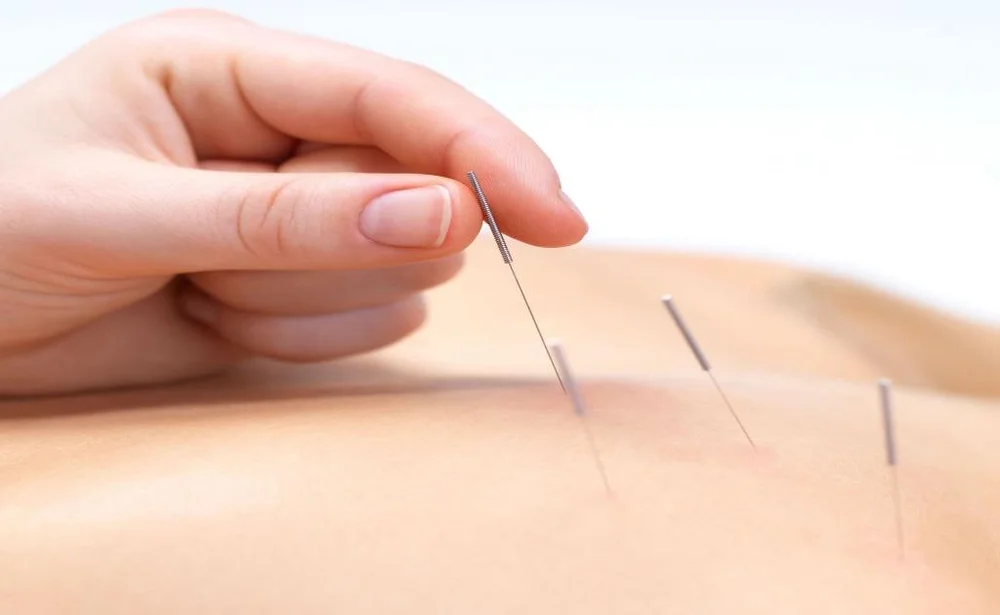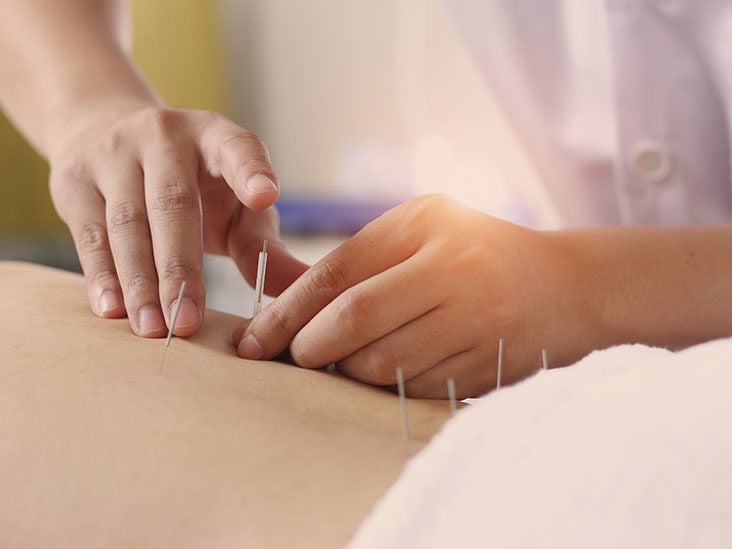
Do you often find yourself feeling overwhelmed and stressed out? It’s no secret that modern-day living can take its toll on our mental well-being. But what if there was a natural way to manage stress without relying on medication or therapy? Enter acupuncture, an ancient practice with proven calming effects. In this blog post, we’ll explore how acupuncture works and how it can help you manage stress and anxiety. So sit back, relax, and discover the power of this time-tested technique. Acupuncture for anxiety, stress and insomnia helps you achieve inner peace and balance.
Table of Contents
What is Acupuncture?
Acupuncture is a form of Traditional Chinese Medicine that has been used for centuries to promote healing. It involves the insertion of thin needles into specific points on the body to relieve pain or restore health.
Acupuncture is based on the belief that there is an invisible life force energy called qi (pronounced “chee”) that flows through the body. This qi can become blocked or unbalanced, which can lead to illness. The goal of acupuncture is to unblock or balance the flow of qi to restore health.
Acupuncture is a safe and effective treatment for a variety of conditions, including pain, stress, anxiety, and headaches. It can also be used to improve overall health and well-being.
How Does Acupuncture Work?
Acupuncture is a holistic approach to wellness that has been used for centuries. This traditional Chinese medicine (TCM) practice involves the insertion of thin needles into specific points on the body. These points are located along energy pathways, or meridians, which are believed to be connected to vital organs.
Acupuncture is thought to promote balance and harmony within the body by restoring the flow of qi, or life force energy. When qi is blocked or unbalanced, it is believed to lead to illness and disease. By inserting needles into key points along the meridians, practitioners can help to release blocked qi and restore balance.
Acupuncture is often used as a tool for managing stress. Stress can lead to a variety of health problems, including anxiety, insomnia, headaches, and digestive issues. By relieving stress and promoting relaxation, acupuncture can help to improve overall health and well-being.
What are the Benefits of Acupuncture for Stress Management?
Acupuncture is an effective stress management tool because it can help to:
- Relieve stress and tension
- Balance the nervous system
- Boost energy levels
- Improve circulation
- Promote relaxation
All of these benefits work together to help the body manage stress in a more effective way. Acupuncture can be used as a standalone treatment for stress or as part of a comprehensive plan that includes other stress-relieving therapies such as massage, meditation, and yoga.
How to Find a Qualified Acupuncturist
Acupuncture has been used for centuries as a way to relieve stress and promote relaxation. If you’re interested in trying acupuncture for yourself, it’s important to find the best acupuncture in Los Angeles. Here are a few tips:
- Ask your primary care doctor for a referral. Many doctors are familiar with acupuncture and can recommend a reputable practitioner in your area.
- Check with professional organizations. The National Certification Commission for Acupuncture and Oriental Medicine (NCCAOM) offers a directory of certified practitioners.
- Ask friends or family members who have tried acupuncture for their recommendations.
- Once you’ve found a few practitioners, be sure to ask about their training and experience. It’s also important to make sure they use sterile needles and follow all safety guidelines.
With a little research, you can find an acupuncturist in Los Angeles who is qualified to help you manage stress and promote relaxation.
Preparing for an Acupuncture Session
Acupuncture is an ancient Chinese practice that has been used for centuries to promote relaxation and stress relief. If you’re considering trying acupuncture for yourself, it’s important to know what to expect and how to prepare for your session.
First, you’ll need to find a qualified acupuncturist. Ask your friends or family if they know of anyone, or search online for reviews. Once you’ve found someone you’re comfortable with, schedule a consultation. This is a good time to ask any questions you have about the treatment and to make sure the acupuncturist is a good fit for you.

During your consultation, the acupuncturist will ask about your health history and current symptoms. They will also assess your pulse and tongue to get a better understanding of your overall health. Based on this information, they will develop a customized treatment plan for you.
Once you’ve decided to go ahead with treatment, there are a few things you can do to prepare for your session. First, wear loose-fitting clothing so the acupuncturist can easily access your skin. Avoid eating a heavy meal before your appointment, as acupuncture can sometimes cause nausea or dizziness. And try to relax and clear your mind before your session; acupuncture works best when you’re not stressed out!
Practising Self-Care After an Acupuncture Session
Acupuncture is a popular alternative therapy that can be used to help manage stress. After an acupuncture session, it is important to practice self-care in order to maintain the benefits of the treatment. There are a few things that you can do to help yourself relax and stay calm after an acupuncture session:
– Drink plenty of water. This will help to flush out the toxins that were released during the treatment.
– Avoid alcohol and caffeine. These substances can interfere with the effects of acupuncture and make it more difficult to relax.
– Take a warm bath or shower. This will help your body to relax and ease any muscle tension that was caused by the needles.
– Get some rest. It is important to give your body time to recover from the treatment. Try to get at least 8 hours of sleep if possible.
Conclusion
Acupuncture is an ancient practice that has much to offer in terms of stress management. Through the combination of pressure points, acupuncture helps to relax and strengthen your body’s systems, allowing you to better cope with the stresses of life. If you are looking for a holistic approach to managing stress, why not give acupuncture a try? With its calming effects and long-lasting results, it may be just what you need.






